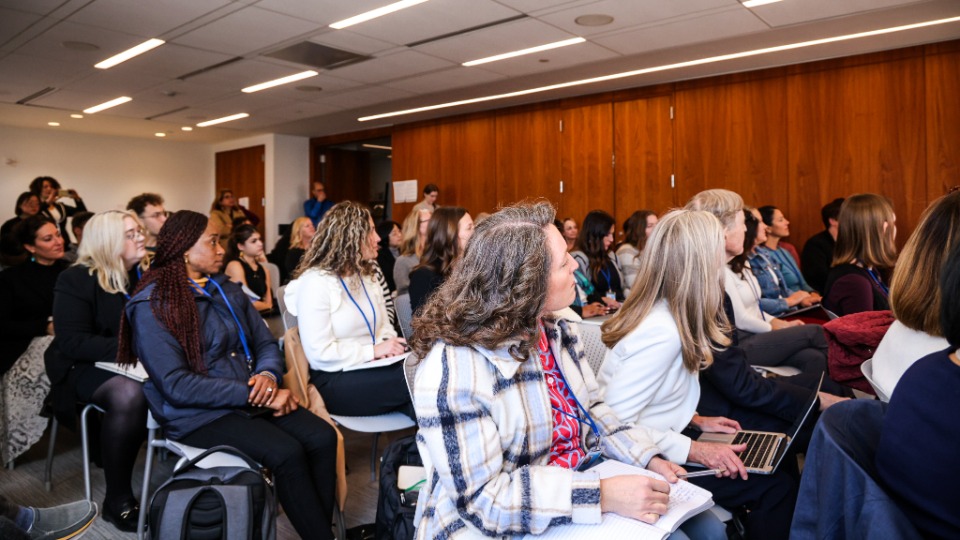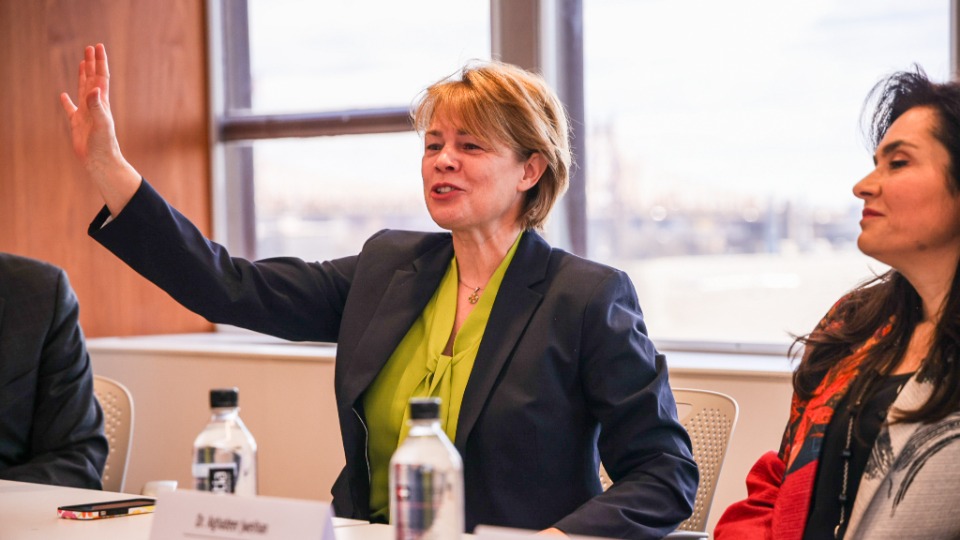The director of Humanitarian Services of The Church of Jesus Christ of Latter-day Saints spoke Monday at the United Nations in New York City about the importance of collaborating with others to solve the problem of poverty.
Participating on a panel at the UN Commission on the Status of Women about partnering against poverty, Sharon Eubank said the life of a 19th-century Latter-day Saint woman provides a pattern to follow today. Martha Hughes Cannon, a well-educated medical professional, helped establish a public health system in Utah to help mothers and their babies — even defeating her husband in a senate race to do it.

“The great message of Martha Hughes Cannon is — you’ve got to work together,” Eubank said. “Your politics are different in your own family and in the legislature and in the community, and the only way to make progress is to build bridges with people who may feel differently than you. You’ve got to build common ground. That’s where I see the greatest progress coming. It’s what motivates me.”
The other panelists were Megan Gilgan, deputy director of UNICEF’s private fundraising and partnerships division, and Aghadeer Jweihan, officer in the Royal Court of His Royal Majesty, Jordan’s King Abdullah, and acting director of the office of HRH Princess Taghrid Mohammad.

Jweihan said her experience shows “you cannot work alone — you need a lot of [collaborators] on board.” Without funding from international organizations, such as The Church of Jesus Christ of Latter-day Saints and many others, Jordan could not support its many millions of refugees.
Gilgan said working together also includes working with families. Supporting family networks is “hugely empowering,” she said.
“We know more now about what helps children thrive,” Gilgan said. “If we can empower parents with those sorts of skills and insights — that makes for a stronger family and helps those parents navigate a world that is changing really fast.”
Eubank said her experience in the Church’s Relief Society General Presidency (2017–2022) taught her that “we have to work with the family as a unit.”
“We are treating women as if they are unconcerned with everything else — [as if] they are not attached to their faith, they are not attached to their husbands or families or brothers,” Eubank said. “We have to deal with that in a holistic way or no progress will be made.”
“Call on your resources and your networks in your communities and your God to make some progress in closing that gap because we are not where we should be,” Eubank said. “Women will not take their rightful, needful place in society until we can manage that holistic gap where men and women work powerfully together.”
Sister Carol McConkie, formerly of the Young Women General Presidency (2013–2018), has served as vice president of the NGO Committee on the Status of Women, Geneva, since 2021. She said events like Monday’s in New York go beyond simply engaging in conversation.
“They serve a very real and needed purpose of establishing and creating relationships that move the conversation to action on the ground,” McConkie said. “Everyone can do something, and working together in partnerships as governments, organizations and individuals creates unity of purpose and of resources that can effectively raise vulnerable populations — particularly women and girls — out of poverty.”
